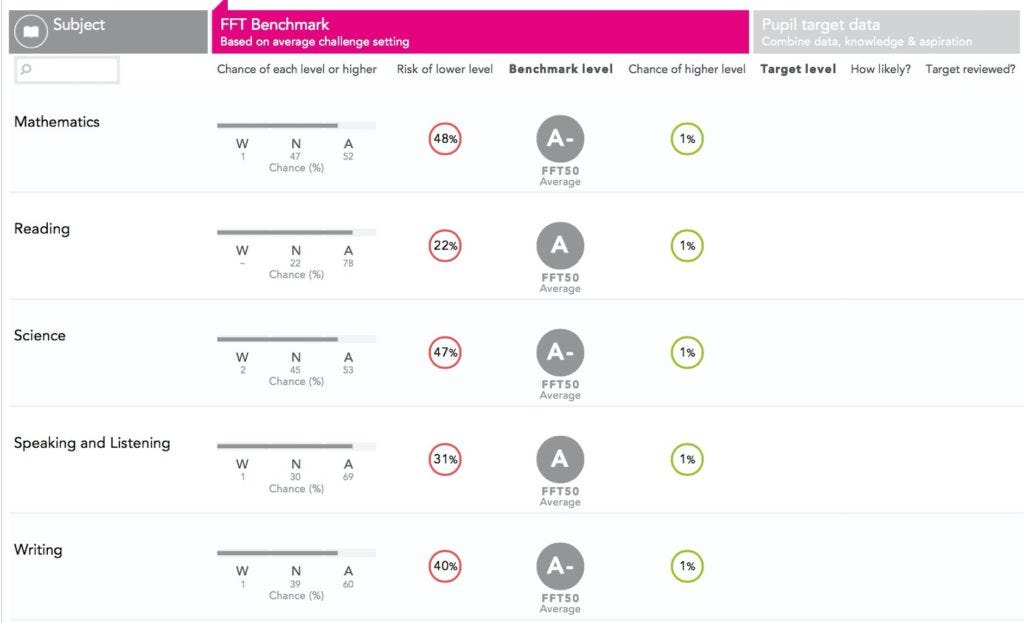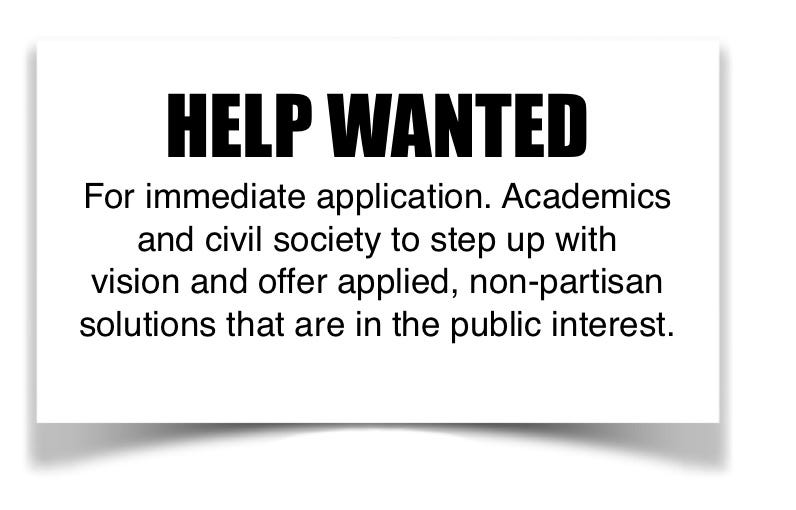The power behind today’s AI in public services
Thinking about whether education in England is preparing us for the jobs of the future, means also thinking about how technology will influence it.
Time and again, thinking and discussion about these topics is siloed. At the Turing Institute, the Royal Society, the ADRN and EPSRC, in government departments, discussions on data, or within education practitioner, and public circles — we are all having similar discussions about data and ethics, but with little ownership and no goals for future outcomes. If government doesn’t get it, or have time for it, or policy lacks ethics by design, is it in the public interest for private companies, Google et al., to offer a fait accompli?
There is lots of talking about Machine Learning (ML), Artificial Intelligence (AI) and ethics. But what is being done to ensure that real values — respect for rights, human dignity, and autonomy — are built into practice in the public services delivery?
In most recent data policy it is entirely absent. The Digital Economy Act s33 risks enabling, through removal of inter and intra-departmental data protections, an unprecedented expansion of public data transfers, with “untrammelled powers”. Powers without codes of practice, promised over a year ago. That has fall out for the trustworthiness of legislative process, and data practices across public services.
Predictive analytics is growing but poorly understood in the public and public sector.
There is already dependence on computers in aspects of public sector work. Its interactions with others in sensitive situations demands better knowledge of how systems operate and can be wrong. Debt recovery, and social care to take two known examples.
Risk averse, staff appear to choose not to question the outcome of ‘algorithmic decision making’ or do not have the ability to do so. There is reportedly no analysis training for practitioners, to understand the basis or bias of conclusions. This has the potential that instead of making us more informed, decision-making by machine makes us humans less clever.
What does it do to professionals, if they feel therefore less empowered? When is that a good thing if it overrides discriminatory human decisions? How can we tell the difference and balance these risks if we don’t understand or feel able to challenge them?
In education, what is it doing to children whose attainment is profiled, predicted, and acted on to target extra or less focus from school staff, who have no ML training and without informed consent of pupils or parents?

If authorities use data in ways the public do not expect, such as to ID homes of multiple occupancy without informed consent, they will fail the future to deliver uses for good. The ‘public interest’, ‘user need,’ and ethics can come into conflict according to your point of view. The public and data protection law and ethics object to harms from use of data. This type of application has potential to be mind-blowingly invasive and reveal all sorts of other findings.

Widely informed thinking must be made into meaningful public policy for the greatest public good
Our politicians are caught up in the General Election and buried in Brexit.
Meanwhile, the commercial companies taking AI first rights to capitalise on existing commercial advantage could potentially strip public assets, use up our personal data and public trust, and leave the public with little public good. We are already used by global data players, and by machine-based learning companies, without our knowledge or consent. That knowledge can be used to profit business models, that pay little tax into the public purse.
There are valid macro economic arguments about whether private spend and investment are preferable compared with a state’s ability to do the same. But these companies make more than enough to do it all. Does it signal a failure to a commitment to the wider community; not paying just amounts of taxes, is it a red flag to a company’s commitment to public good?
What that public good should look like, depends on who is invited to participate in the room, and not to tick boxes, but to think and to build.
The Royal Society’s Report on AI and Machine Learning published on April 25, showed a working group of 14 participants, including two Google DeepMind representatives, one from Amazon, private equity investors, and academics from cognitive science and genetics backgrounds.
Our #machinelearning working group chair, professor Peter Donnelly FRS, on today’s major #RSMachinelearning report https://t.co/PBYjzlESmB pic.twitter.com/RM9osnvOMX
— The Royal Society (@royalsociety) April 25, 2017
If we are going to form objective policies the inputs that form the basis for them must be informed, but must also be well balanced, and be seen to be balanced. Not as an add on, but be in the same room.
As Natasha Lomas in TechCrunch noted, “Public opinion is understandably a big preoccupation for the report authors — unsurprisingly so, given that a technology that potentially erodes people’s privacy and impacts their jobs risks being drastically unpopular.”
“The report also calls on researchers to consider the wider impact of their work and to receive training in recognising the ethical implications.”
What are those ethical implications? Who decides which matter most? How do we eliminate recognised discriminatory bias? What should data be used for and AI be working on at all? Who is it going to benefit? What questions are we not asking? Why are young people left out of this debate?
Who decides what the public should or should not know?
AI and ML depend on data. Data is often talked about as a panacea to problems of better working together. But data alone does not make people better informed. In the same way that they fail, if they don’t feel it is their job to pick up the fax. A fundamental building block of our future public and private prosperity is understanding data and how we, and the AI, interact. What is data telling us and how do we interpret it, and know it is accurate?
How and where will we start to educate young people about data and ML, if not about their own and use by government and commercial companies?
The whole of Chapter 5 in the report is very good as a starting point for policy makers who have not yet engaged in the area. Privacy while summed up too short in conclusions, is scattered throughout.
Blind spots remain, however.
- Over willingness to accommodate existing big private players as their expertise leads design, development and a desire to ‘re-write regulation’.
- Slowness to react to needed regulation in the public sector (caught up in Brexit) while commercial drivers and technology change forge ahead
- ‘How do we develop technology that benefits everyone’ must not only think UK, but global South, especially in the bias in how AI is being to taught, and broad socio-economic barriers in application
- Predictive analytics and professional application = unwillingness to question the computer result. In children’s social care this is already having a damaging upturn in the family courts (S31)
- Data and technology knowledge and ethics training, must be embedded across the public sector, not only post grad students in machine learning.
- Harms being done to young people today and potential for intense future exploitation, are being ignored by policy makers and some academics. Safeguarding is often only about blocking in case of liability to the provider, stopping children seeing content, or preventing physical exploitation. It ignores exploitation by online platform firms, and app providers and games creators, of a child’s synthesised online life and use. Laws and government departments’ own practices can be deeply flawed.
- Young people are left out of discussions which, after all, are about their future. [They might have some of the best ideas, we miss at our peril.]
There is no time to waste
Children and young people have the most to lose while their education, skills, jobs market, economy, culture, care, and society goes through a series of gradual but seismic shift in purpose, culture, and acceptance before finding new norms post-Brexit. They will also gain the most if the foundations are right. One of these must be getting age verification right in GDPR, not allowing it to enable a massive data grab of child-parent privacy.
Although the RS Report considers young people in the context of a future workforce who need skills training, they are otherwise left out of this report.
“The next curriculum reform needs to consider the educational needs of young people through the lens of the implications of machine learning and associated technologies for the future of work.”
Yes it does, but it must give young people and the implications of ML broader consideration for their future, than classroom or workplace.
Facebook has targeted vulnerable young people, it is alleged, to facilitate predatory advertising practices. Some argue that emotive computing or MOOCs belong in the classroom. Who decides?
We are not yet talking about the effects of teaching technology to learn, and its effect on public services and interactions with the public. Questions that Sam Smith asked in Shadow of the smart machine: Will machine learning end?
At the end of this Information Age we are at a point when machine learning, AI and biotechnology are potentially life enhancing or could have catastrophic effects, if indeed “AI will cause people ‘more pain than happiness” as described by Alibaba’s founder Jack Ma.
The conflict between commercial profit and public good, what commercial companies say they will do and actually do, and fears and assurances over predicted outcomes is personified in the debate between Demis Hassabis, co-founder of DeepMind Technologies, (a London-based machine learning AI startup), and Elon Musk, discussing the perils of artificial intelligence.
Vanity Fair reported that, “Elon Musk began warning about the possibility of A.I. running amok three years ago. It probably hadn’t eased his mind when one of Hassabis’s partners in DeepMind, Shane Legg, stated flatly, “I think human extinction will probably occur, and technology will likely play a part in this.””
Musk was of the opinion that A.I. was probably humanity’s “biggest existential threat.”
We are not yet joining up multi disciplinary and cross sector discussions of threats and opportunities
Jobs, shift in needed skill sets for education, how we think, interact, value each other, accept or reject ownership and power models; and later, from the technology itself. We are not yet talking conversely, the opportunities that the seismic shifts offer in real terms. Or how and why to accept or reject or regulate them.
Where private companies are taking over personal data given in trust to public services, it is reckless for the future of public interest research to assume there is no public objection. How can we object, if not asked? How can children make an informed choice? How will public interest be assured to be put ahead of private profit? If it is intended on balance to be all about altruism from these global giants, then they must be open and accountable.
Private companies are shaping how and where we find machine learning and AI gathering data about our behaviours in our homes and public spaces.
SPACE10, an innovation hub for IKEA is currently running a survey on how the public perceives and “wants their AI to look, be, and act”, with an eye on building AI into their products, for us to bring flat-pack into our houses.
As the surveillance technology built into the Things in our homes attached to the Internet becomes more integral to daily life, authorities are now using it to gather evidence in investigations; from mobile phones, laptops, social media, smart speakers, and games. The IoT so far seems less about the benefits of collaboration, and all about the behavioural data it collects and uses to target us to sell us more things. Our behaviours tell much more than how we act. They show how we think inside the private space of our minds.
Do you want Google to know how you think and have control over that? The companies of the world that have access to massive amounts of data, and are using that data to now teach AI how to ‘think’. What is AI learning? And how much should the State see or know about how you think, or try to predict it?
Who cares, wins?
It is not overstated to say society and future public good of public services, depends on getting any co-dependencies right. As I wrote in the time of care.data, the economic value of data, personal rights and the public interest are not opposed to one another, but have synergies and co-dependency. One player getting it wrong, can create harm for all. Government must start to care about this, beyond the side effects of saving political embarrassment.
Without joining up all aspects, we cannot limit harms and make the most of benefits. There is nuance and unknowns. There is opaque decision making and secrecy, packaged in the wording of commercial sensitivity and behind it, people who can be brilliant but at the end of the day, are also, human, with all our strengths and weaknesses.
And we can get this right, if data practices get better, with joined up efforts.
Our future society, as our present, is based on webs of trust, on our social networks on- and offline, that enable business, our education, our cultural, and our interactions. Children must trust they will not be used by systems. We must build trustworthy systems that enable future digital integrity.
The immediate harm that comes from blind trust in AI companies is not their AI, but the hidden powers that commercial companies have to nudge public and policy maker behaviours and acceptance, towards private gain. Their ability and opportunity to influence regulation and future direction outweighs most others. But lack of transparency about their profit motives is concerning. Carefully staged public engagement is not real engagement but a fig leaf to show ‘the public say yes’.
The unwillingness by Google DeepMind, when asked at their public engagement event, to discuss their past use of NHS patient data, or the profit model plan or their terms of NHS deals with London hospitals, should be a warning that these questions need answers and accountability urgently.
As TechCrunch suggested after the event, this is all “pretty standard playbook for tech firms seeking to workaround business barriers created by regulation.” Calls for more data, might mean an ever greater power shift.
Companies that have already extracted and benefited from personal data in the public sector, have already made private profit. They and their machines have learned for their future business product development.
A transparent accountable future for all players, private and public, using public data is a necessary requirement for both the public good and private profit. It is not acceptable for departments to hide their practices, just as it is unacceptable if firms refuse algorithmic transparency.
“Rebooting antitrust for the information age will not be easy. It will entail new risks: more data sharing, for instance, could threaten privacy. But if governments don’t want a data economy dominated by a few giants, they will need to act soon.” [The Economist, May 6]
If the State creates a single data source of truth, or private Giant tech thinks it can side-step regulation and gets it wrong, their practices screw up public trust. It harms public interest research, and with it our future public good.
But will they care?
If we care, then across public and private sectors, we must cherish shared values and better collaboration. Embed ethical human values into development, design and policy. Ensure transparency of where, how, who and why my personal data has gone.
We must ensure that as the future becomes “smarter”, we educate ourselves and our children to stay intelligent about how we use data and AI.
We must start today, knowing how we are used by both machines, and man.
First published on Medium for a change.


